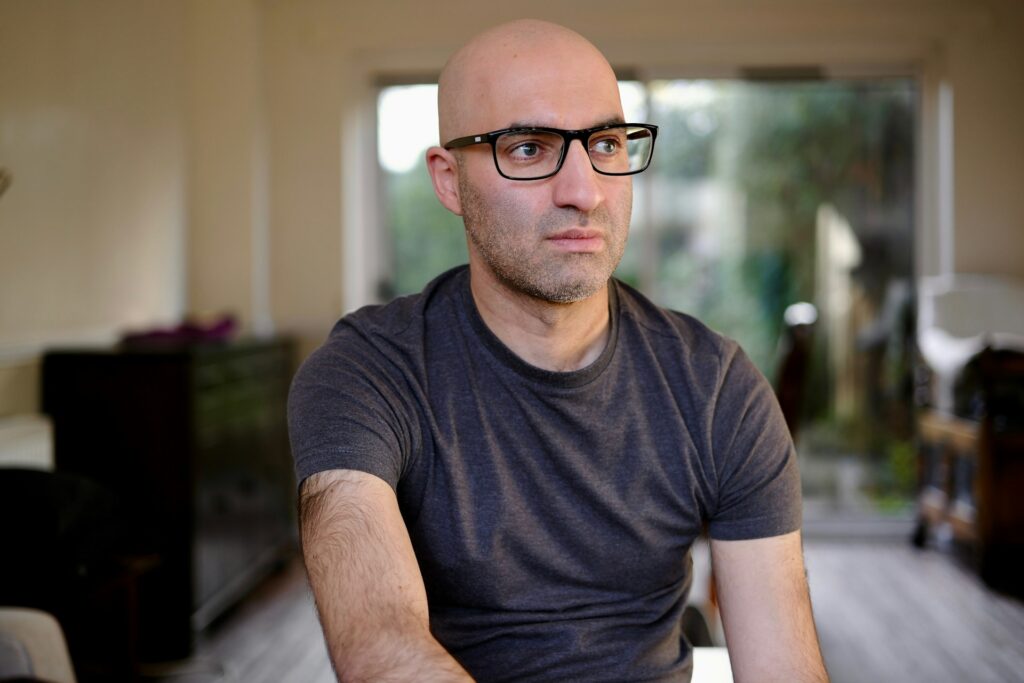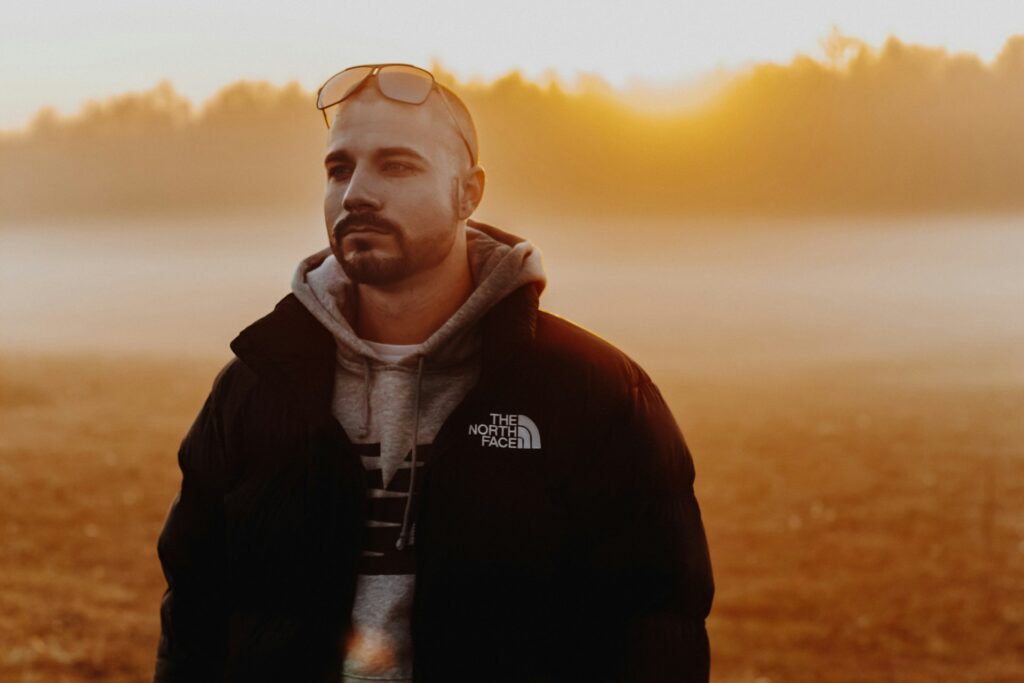It’s one of the hardest things to admit: maybe your parents loved you the best way they knew how, but it still wasn’t what you needed.

You can logically understand their limitations and still carry the emotional scars. Certain mental health struggles don’t just come out of nowhere. They often grow in the quiet gaps where support, validation, and safety were supposed to be. If these struggles feel painfully familiar, it doesn’t mean you’re broken. It means your needs weren’t met the way they should’ve been—and recognising that is part of how you start to heal.
1. You constantly battle low self-esteem.

When love felt conditional growing up—only available when you performed, pleased, or hid parts of yourself—you internalised the message that you weren’t enough as you were. That belief doesn’t disappear just because you’re grown now. It shows up as chronic self-doubt, self-criticism, and a deep-rooted fear that you’ll never measure up, no matter how much you achieve. You’re not imagining it: real, unconditional love teaches worth. You had to guess at it instead.
2. You struggle with intense guilt over basic needs.

Maybe you feel bad asking for help, taking a break, or even acknowledging that you’re tired. When your emotional needs were treated as burdens growing up, needing anything now can feel wrong or selfish. That guilt isn’t a sign that you’re asking for too much—it’s a leftover survival reflex from a time when your needs weren’t met with care. Relearning that you’re allowed to take up space is part of healing.
3. You’re terrified of emotional intimacy.

Letting people close feels dangerous because early love didn’t feel safe or predictable. You learned that opening your heart meant risking hurt, abandonment, or being misunderstood again and again. Now, even when part of you craves real connection, another part slams on the brakes out of pure reflex. You didn’t invent this fear; it was wired in when love felt like walking through a minefield.
4. You minimise your own pain.

When your hurts were brushed off or belittled growing up, you learned to beat everyone else to the punch. You downplay your struggles, call yourself dramatic, and tell yourself that other people have it worse. The problem is that silencing your pain doesn’t make it go away—it just buries it deeper. Healing starts when you stop asking whether you “deserve” to hurt and start trusting that your feelings matter because you do.
5. You’re afraid of being “too much” for people.

Somewhere along the line, you got the message that your emotions, your needs, your very self took up more space than anyone wanted to give. Maybe it wasn’t said outright, but you felt it in every sigh, every dismissal, every cold withdrawal. Now, every time you feel something big—joy, sadness, anger—you shrink instinctively, scared you’ll overwhelm people or push them away. But needing support doesn’t make you too much. It makes you human.
6. You find it hard to trust good things.

Good moments can leave you suspicious, scanning for the inevitable crash. Growing up without consistent emotional safety teaches you that peace is a trap, and happiness is just the part before everything falls apart again. This isn’t pessimism—it’s self-protection learned the hard way. Learning to relax into the good without waiting for disaster is a skill you deserved to be taught early on, but it’s never too late to build it now.
7. You struggle with chronic anxiety.

When emotional needs weren’t met consistently, your nervous system learned to live on high alert. You didn’t feel safe enough to fully relax, and that tension stuck around even when the danger faded. Chronic anxiety isn’t about weakness—it’s about survival. Your mind and body adapted to uncertainty, even though you deserved to grow up knowing that the ground beneath you was solid and dependable.
8. You people-please even when it hurts you.

If love felt earned rather than given, you likely learned early that keeping people happy was the fastest way to stay safe. That pattern doesn’t just switch off in adulthood, sadly. It follows you into work, friendships, and relationships. Now, saying yes when you want to say no feels automatic, and disappointing someone feels catastrophic. You’re not spineless; you were trained to survive emotional unpredictability by becoming whatever someone else needed.
9. You avoid conflict at all costs.

When disagreements at home turned volatile, or when no one taught you healthy ways to handle tension, you learned to fear conflict instead of seeing it as normal. Arguments didn’t mean resolution; they meant danger, silence, or emotional withdrawal. So now, you might swallow your needs, tiptoe around issues, or panic at any sign of disagreement. It’s not because you’re weak; it’s because no one showed you conflict could be survivable, even strengthening, when handled with love.
10. You second-guess your instincts constantly.

If your feelings were denied, mocked, or twisted growing up, trusting yourself now feels impossible. You learned that what you sensed wasn’t right, that your perceptions were flawed, that you couldn’t even trust your gut. That self-doubt seeps into every decision, every relationship, every moment of uncertainty. You didn’t invent this fear of being wrong; it was slowly planted, and it can be slowly uprooted too.
11. You attach your worth to achievements.

When love was tied to performance—grades, awards, obedience—you naturally started equating success with being lovable. Being just yourself never felt like it was enough to guarantee approval. Now, every promotion, every gold star, every win feels briefly satisfying, but never quite enough. Deep down, you’re still chasing the feeling that you’re “good enough” without needing to prove it every five minutes.
12. You carry a constant, vague sense of shame.

It’s not tied to anything specific—it just sits there, humming beneath everything. The shame of existing, of needing, of feeling, was quietly baked into your early environment where love felt conditional or brittle. That shame isn’t your fault. It’s what happens when children are made to feel like problems instead of people. Healing means learning you were never wrong for being exactly who you are.
13. You feel responsible for fixing broken relationships.

If you grew up trying to soothe adults who should have been soothing you, you probably still feel an exaggerated sense of responsibility for other people’s feelings and problems. Even when someone mistreats you, part of you wonders if it’s your job to fix it. But it was never your job to parent your parents, and it’s not your job to heal people who aren’t willing to meet you halfway now.
14. You struggle to believe unconditional love exists.

When love was tied to behaviour, silence, or conditions, it’s hard to believe anyone could really love the parts of you that you usually hide. Real unconditional love feels suspicious, almost dangerous because it doesn’t match the blueprint you were handed. Learning to trust it takes time. It means allowing people to see you—even when you’re messy, tired, scared—and realising they won’t run. That’s the kind of love you were always worthy of, even if you had to wait too long to experience it.
15. You find it hard to ask for help until you’re drowning.

Early on, you learned that needing help might be met with rejection, judgement, or worse—nothing at all. So now, you soldier through silently until things are unbearable because asking sooner feels vulnerable and risky. Reaching out before you break down isn’t weak—it’s wise. Your needs aren’t a burden, and you never deserved to be left alone with them in the first place.
16. You constantly feel like you’re “too much” and “not enough” at the same time.

That’s the ultimate emotional whiplash when love wasn’t stable: feeling like you take up too much space while simultaneously believing you’re fundamentally lacking. It’s a painful contradiction that can follow you everywhere. Of course, you were never too much. You were never not enough. You were simply a child trying to get your needs met in an environment that didn’t know how to meet them. That was never a reflection of your worth; it was a reflection of their limitations.


